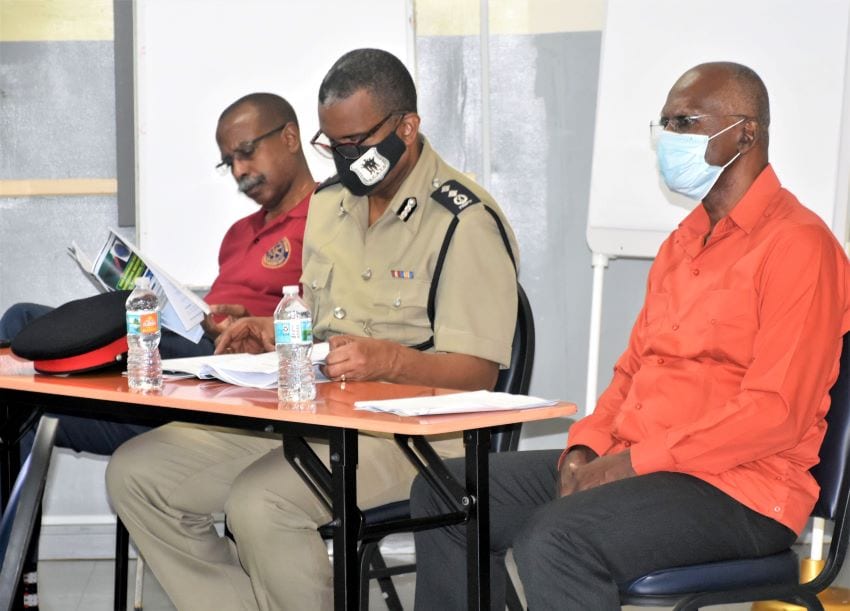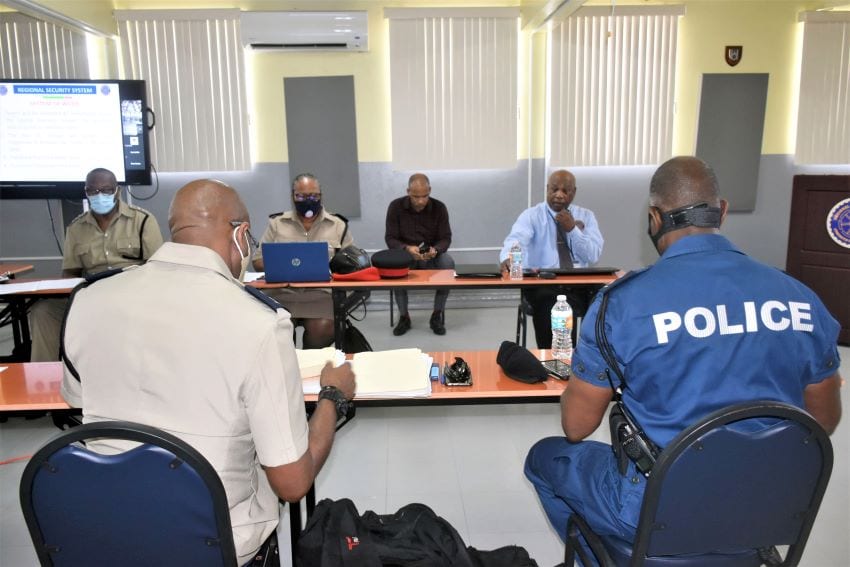
When delegates from the 195 member countries of the United Nations Conference on Trade and Development (UNCTAD) travel to Barbados next April to attend the UNCTAD 15 Conference, they can be assured that their safety and security is a priority for the organisers of the conference. Former Commissioner of Police, Darwin Dottin, is the National Organising Committee’s Focal Point for Security. He and his colleagues in the Security team are well advanced in their planning to ensure that they deliver a safe and secure conference.
The Security team includes representation from the Royal Barbados Police Force (RBPF), the Barbados Defence Force (BDF), the Barbados Fire Service (BFS), and the Department of Emergency Management (DEM).
Health is an important component for the Security cluster, particularly as we manage the COVID-19 pandemic. For this reason, former Chief Medical Officer, Dr. Elizabeth Ferdinand, is also part of the team.
However, it’s not just local resources which are being called upon to secure the Conference, but regional and international resources as well. Meetings have been held with personnel from the Regional Security System (RSS) to develop a plan of action for providing the RSS’ support.
The RSS was created out of a need for a collective response to security threats which were impacting on the stability of the region in the early 1970s and 1980s.
In October 1982, four members of the Organisation of the Eastern Caribbean States, namely, Antigua and Barbuda, Dominica, St. Lucia and St. Vincent and the Grenadines, signed a Memorandum of Understanding with Barbados to provide for “mutual assistance on request”. After gaining independence in September 1983, St. Kitts and Nevis joined the RSS, and subsequently Grenada in January 1985.

The local and regional law enforcement personnel will be working in collaboration with the United Nations Department of Safety and Security.
Members of the local and regional Security cluster recently gathered at the Headquarters of the RSS at Paragon, Christ Church, to participate in a planning exercise in preparation for the Conference.
Senior leadership and team leaders from the RBPF, the BDF and the BFS were in attendance. These included Acting Commissioner of the RBPF, Erwin Boyce; Executive Director of the RSS, Captain Errington Shurland; and Chief of Staff of the BDF, Colonel Glyne Grannum.
Participants at the RSS Headquarters were separated into two conference rooms to achieve the necessary physical distancing, while they were connected virtually. Other participants located elsewhere offsite joined the training session online.
When he officially opened the training session, Director of Training at the RSS, Lt. Commander Brian Roberts, told participants that the purpose of the exercise was to explore “well-designed and realistic scenarios, provide an opportunity to test response capabilities, and make recommendations for robust responses.” This preparatory work will ensure that teams have adequate experience of working together.
Lt. Commander Roberts then turned the session over to Training Institute Manager, Brigadier General (Ret’d.) Earl Arthurs, to conduct the table top exercise. The training booklet used for the exercise concludes that, “Effective leadership is critical, especially in a crisis and requires good command, control and communication, well trained and experienced responders; and readiness must be regularly tested under realistic conditions.”

While General Arthurs put the participants through their paces with the expected military discipline, he also managed to infuse some humour into the situation.
The training exercise involved a number of scenarios to challenge the participants to use their plans, procedures and training to formulate and discuss their response to the different situations. The scenarios were introduced in quick succession, and the teams had a limited time period in which to come up with appropriate responses to the various situations.
This allowed the evaluation team to assess their leadership and decision making, plans and procedures, kit and equipment, training needs, specialist skills and overall human resource capability.
At the end of the training session, the participants discussed what went well, what needed to be improved, and what recommendations should be made in order to achieve the objectives.
In his closing assessment, Mr. Dottin said that it was an excellent exercise. He commended the level of participation and the spirit of camaraderie among the various groups.
Another exercise, this time a practical one, is scheduled for early December. Participants will be moving from the classroom to the field, as they continue on their mission to ensure a safe and secure UNCTAD 15 Conference.
